ADC Pi
In stock, ships same business day if ordered before 2PM
Fastest delivery: Tomorrow*
Disclaimer:
For next-day delivery, the shipping address must
be in the AusPost next-day network, eParcel Express must be selected, and the order must be placed
before 2PM AEST Mon-Thurs excluding NSW Public Holidays. Orders may be delayed due to AusPost
pickup timings and order verifications. eParcel Express is typically a 1-day service within the
AusPost next-day network, though it is sometimes 2+ days.
Quantity Discounts:
- 10+ $37.31 (exc GST)
- 25+ $36.15 (exc GST)
Recommended Essentials:

$128.44
The ADC Pi is an 8 channel 17 bit analogue to digital converter designed to work with the Raspberry Pi. The ADC Pi is based on two Microchip MCP3424 A/D converters each containing 4 analogue inputs. The MCP3424 is a delta-sigma A/D converter with low noise differential inputs.
Not sure which ADC you need ? Check our Analogue to Digital Buyers guide to compare our ADC expansion boards.
We designed the ADC Pi to work as a single ended A/D converter using the internal 2.048V reference voltage with the -V pins tied to ground. A voltage divider on the ADC Pi board brings the input voltage range to a much more useful 0 – 5.06V. In this configuration the sample size is 17 bits for each channel.
The ADC Pi is powered through the host Raspberry Pi using the GPIO port and extended pins on the GPIO connector allow you to stack the ADC Pi along with other expansion boards.
The two MCP3424 A/D converters communicate via i2c to the host Raspberry Pi giving you eight analogue inputs to use. A logic level converter is included on the ADC Pi board giving you a buffered 5V i2c port making it easy to add other I2C devices which operate at 5 volts without damaging the raspberry pi 3.3 volt i2c port. The i2c buffer uses N-channel mosfets with a maximum drain current of 100mA.
You will need to enable i2c on your Raspberry Pi, you can follow this tutorial to guide you through that process
The I2C address bits are selectable using the on-board jumpers. The MCP3424 supports up to 8 different I2C addresses so with two A/D converters on each ADC Pi you can stack up to 4 ADC Pi boards on a single Raspberry Pi giving you 32 ADC inputs.
The MCP3424 contains a programmable Gain Amplifier giving the user a selectable gain of x1, x2, x4 or x8 before the analogue to digital conversion takes place.
The data rate for analogue to digital conversions is 3.75 (17 bit), 15 (15 bit), 60 (13 bit) or 240 (11 bit) samples per second. Data rate and resolution can be configured within software using the I2C interface.
We have a knowledge base article, ADC Sample Rate Comparison which has more detailed sample information and test scripts to compare the different MCP2424 ADC chip bit and sample rates.
Unused inputs should be tied to ground.
If you want to sample a higher input voltage you can use our ADC Pi Input Voltage Calculator to find the additional resistors and calculation values needed.
Note: We designed the ADC Differential Pi as a companion for our ADC Pi. Unlike the ADC Pi the ADC Differential Pi does not include any voltage dividers so the inputs can be used to measure a differential voltage range of ±2.048V. This is useful for measuring inputs below ±2.048V or allows you to use your own voltage divider to measure higher voltages.
Features
- 8 x 17-bit 0 to 5V Single Ended Inputs
- Control via the Raspberry Pi I2C port
- Stack up to 4 ADC Pi boards on a single Raspberry Pi
- Jumper selectable I2C addresses
- Buffered 5V I2C port
- Based on the MCP3424 from Microchip Technologies Inc
- Single Ended full-scale range of 5.0V
- On-board 2.048V reference voltage (Accuracy ± 0.05%, Drift: 15 ppm/°C)
- On-Board Programmable Gain Amplifier (PGA): Gains of 1, 2, 4 or 8
- Programmable Data Rate Options:
- - 3.75 SPS (17 bits)
- - 15 SPS (15 bits)
- - 60 SPS (13 bits)
- - 240 SPS (11 bits)
- One-Shot or Continuous Conversion Options
Specifications
- Vdd (5V pin on I2C bus): 5.0V
- ADC Input Voltage: 0V to +5.06V
- Maximum ADC Input voltage: VSS–0.4V to VDD+0.4 V
- Current at Input Pins: ±2 mA
- I2C SDA/SCL voltage: 5.0 V
- I2C port current: 100 mA
Assembly Guide
The ADC Pi is supplied with the 40 pin GPIO connector and the 12 pin address connector unsoldered. We supply the ADC Pi this way because the Raspberry Pi Zero is also supplied without a GPIO header and the ADC Pi could therefore be fitted both above or below the Raspberry Pi Zero.
Before using the ADC Pi you will need to solder both connectors onto the PCB. We suggest soldering the 40 pin GPIO connector first and then the address select connector. Soldering the address select connector first will make it difficult to access the three corner pins on the GPIO connector.
The assembly video for the ADC Pi Plus shows the same steps that are needed to assemble the ADC Pi .
I2C Address Selection
| Adr 0 | Adr 1 | I2C Address |
|---|---|---|
| Low or Float | Low or Float | 0x68 |
| Low | Float | 0x69 |
| Low | High | 0x6A |
| Float | Low | 0x6B |
| High | Low | 0x6C |
| High | Float | 0x6D |
| High | High | 0x6E |
| Float | High | 0x6F |
Documents
Exact shipping can be calculated on the view cart page (no login required).
Products that weigh more than 0.5 KG may cost more than what's shown (for example, test equipment, machines, >500mL liquids, etc).
We deliver Australia-wide with these options (depends on the final destination - you can get a quote on the view cart page):
- $3+ for Stamped Mail (typically 10+ business days, not tracked, only available on selected small items)
- $7+ for Standard Post (typically 6+ business days, tracked)
- $11+ for Express Post (typically 2+ business days, tracked)
- Pickup - Free! Only available to customers who live in the Newcastle region (must order online and only pickup after we email to notify you the order is ready). Orders placed after 2PM may not be ready until the following business day.
Non-metro addresses in WA, NT, SA & TAS can take 2+ days in addition to the above information.
Some batteries (such as LiPo) can't be shipped by Air. During checkout, Express Post and International Methods will not be an option if you have that type of battery in your shopping cart.
International Orders - the following rates are for New Zealand and will vary for other countries:
- $12+ for Pack and Track (3+ days, tracked)
- $16+ for Express International (2-5 days, tracked)
If you order lots of gear, the postage amount will increase based on the weight of your order.
Our physical address (here's a PDF which includes other key business details):
40 Aruma Place
Cardiff
NSW, 2285
Australia
Take a look at our customer service page if you have other questions such as "do we do purchase orders" (yes!) or "are prices GST inclusive" (yes they are!). We're here to help - get in touch with us to talk shop.
Have a product question? We're here to help!
Videos
View AllGuides
Raspberry Pi 5 Vs Raspberry Pi 4 Model B | Comparison & Benchmarking
Raspberry Pi 5 | Review, Performance & Benchmarks
How to use a PiRelay HAT for Raspberry Pi - Multiple Relay Control with Voice or GUI
How to use Stepper Motors and DC Motors with a Raspberry Pi - Adafruit DC & Stepper Motor HAT
Projects
safePower
ESP32 IR-Triggered Camera with Home Assistant Integration
LuMa 1 - The Neo Disco Ball
Educational Workshops
Raspberry Pi Workshop for Beginners
Makers love reviews as much as you do, please follow this link to review the products you have purchased.

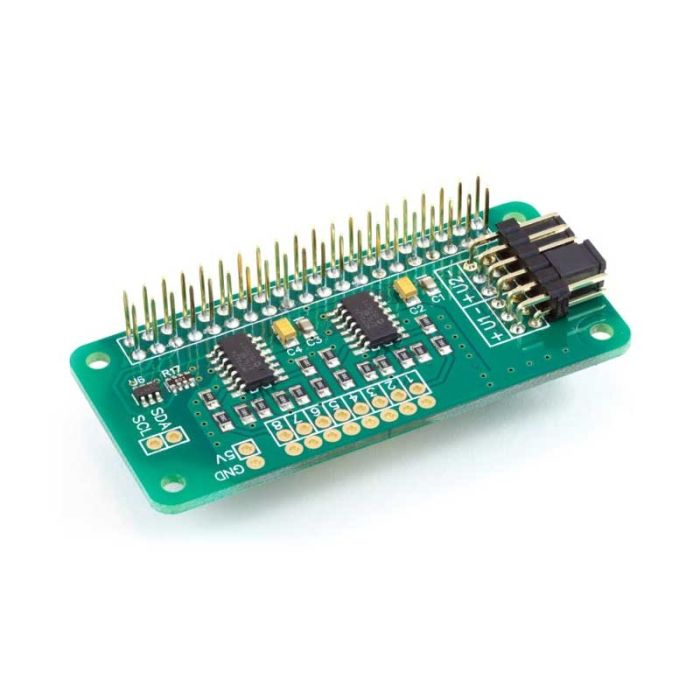


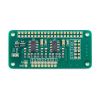




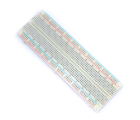
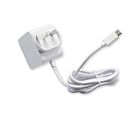


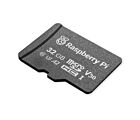
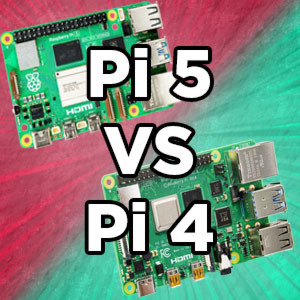
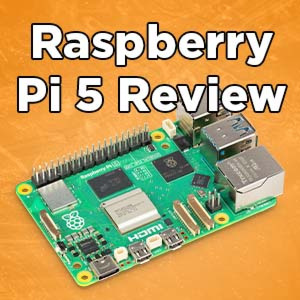

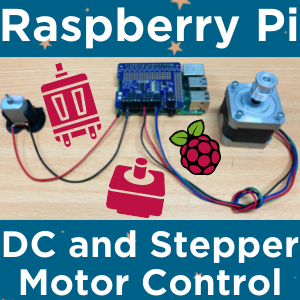
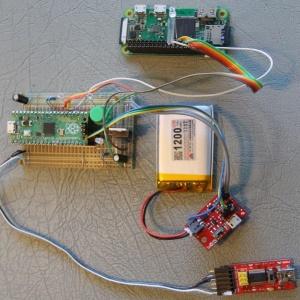
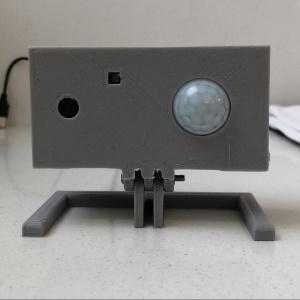
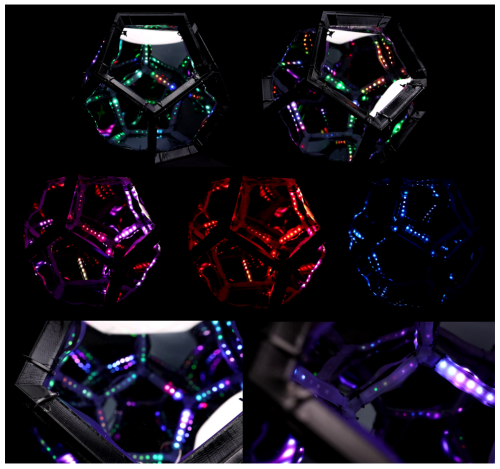
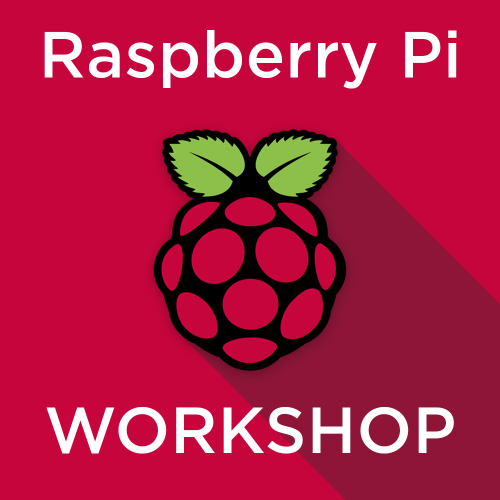

Product Comments